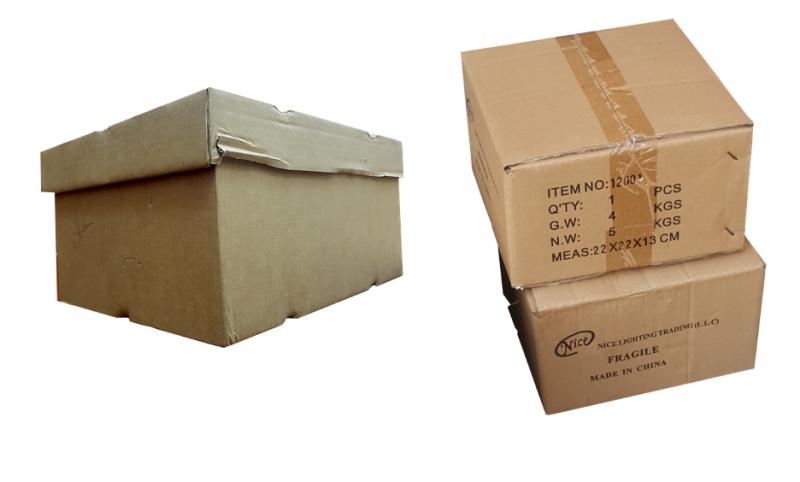The Savvy Tenant's Guide to Affordable Apartment Moving

You're gearing up for a big move, but the costs are adding up, and you're feeling overwhelmed. Don't fret! This guide's got your back.
We'll walk you through understanding moving expenses, planning economically, packing efficiently, and even choosing an affordable moving company. With these tips, you'll not only save money but also reduce stress.
Ready to make that savvy move? Let's dive in!
Understanding the costs of moving
Let's delve into comprehending the intricacies of moving costs, as they often entail more nuances than one might initially assume.
To begin, there are direct expenditures to take into account. Opting for a professional moving company can incur substantial costs, contingent upon the distance and the volume of your possessions. Should you opt for a DIY move, remember to incorporate expenses for truck rentals and fuel. Additionally, the cumulative expenses of packing materials like boxes, bubble wrap, and packing tape should not be disregarded.
Moving on, insurance becomes a vital consideration. While most moving companies provide basic coverage gratis, this might prove insufficient if you possess high-value items. Acquiring supplementary insurance could be necessary to comprehensively safeguard your assets during the journey.
Unexpectedly, cleaning services emerge as another potential expense. Numerous landlords stipulate that apartments be professionally cleaned prior to the handover of keys.
Lastly, it's crucial not to neglect transient living costs in the event of a hiatus between vacating your old residence and gaining access to the new one. This encompasses expenses related to hotel lodgings or short-term apartment rentals, along with out-of-pocket meal costs.
In the context of finding free moving boxes in Dubai, there are several sources to explore. Local supermarkets, retail stores, and online platforms often offer a supply of free boxes that can aid in reducing your packing costs.
Strategies for Planning an Economic Move
You'll need to carefully strategize to make your move as economical as possible. Begin by creating a detailed moving budget. This will help you identify potential areas where you can save money, such as packing supplies or transportation costs.
For instance, collecting free boxes from local businesses or friends who've recently moved can significantly cut down on expenses.
It's also crucial that you compare quotes from multiple moving companies. Prices vary widely depending on the company and the services they offer, so shopping around is worthwhile. Remember, cheapest isn't always best; ensure the company has a reputation for reliability and professionalism too.
Another strategic approach is to schedule your move during off-peak times. Most people tend to move at the end of the month or during the summer months, when demand for movers is high, so prices are likely higher too. If it's feasible, consider a mid-month or off-season move, which may be cheaper.
Lastly, consider downsizing before your move by selling, donating, or tossing items you no longer need or use. The less stuff you have to transport, the lower your moving costs will be.
With careful planning and smart strategies, you can keep expenses under control.
Packing tips to save money and reduce stress

Packing efficiently is an often overlooked strategy that can significantly reduce both the cost and stress of relocating. You're likely to find that your moving expenses decrease substantially when you pack in a way that maximizes space, protects your belongings, and streamlines the unpacking process.
Here are three key tips to pack smartly:
- Minimize before you start: Before packing anything, take some time to declutter. You'll be surprised at how much you don't need or use anymore. This alone can significantly cut down on what you have to move.
- Use what you have. Don't rush out to buy expensive packing supplies. Instead, use things like towels or clothes for padding, suitcases for bulky items, and pots for small kitchen gadgets.
- Organize as you pack: Label each box with its contents and the room it's destined for in your new place. This will make unpacking a breeze.
By implementing these strategies, you not only save money but also reduce undue stress during the chaos of moving day.
Next up: selecting a budget-friendly moving company—another critical step towards ensuring a smooth transition into your new home.
Selecting a Budget-Friendly Moving Company

Choosing a cost-effective moving company is as important as packing efficiently to ensure you're not overspending on your relocation. Start by doing thorough research, comparing the prices and services of different companies. Don't settle for the first one that pops up in your search; instead, take time to weigh your options.
You'll want to look out for hidden fees that can inflate your bill. It's common for companies to charge extra for things like wrapping furniture or heavy lifting. Make sure that everything is included in the quoted price before signing a contract.
Also, consider the timing of your move. If you have flexibility, aim for off-peak times when demand isn't high—typically mid-month or during the fall and winter seasons. Companies often offer discounts during these periods.
Lastly, don't underestimate the power of negotiation. You'd be surprised at what you can shave off your final quote if you simply ask.
Remember: while it's crucial to find a budget-friendly mover, don't sacrifice quality service just to save a few bucks. The best deal will balance cost with reliability and professionalism. After all, they'll be handling your precious belongings; you want them in good hands.
Post-Move Financial Management Tips
Managing your finances effectively after the move is vitally important to avoid any monetary issues down the line. Once you've settled into your new apartment, it's easy to think that the financial stress is over. However, without proper post-move financial management, you could find yourself facing unexpected costs.
1) Develop a budget: Begin by taking stock of your income and monthly spending. List all expenses, including rent, utilities, groceries, transportation, and other personal expenses. Allocating specific amounts for each category will help you monitor your expenditures and avoid overspending.
2) Make timely rent payments. Late payments can result in penalties that add up quickly. Set reminders or automate payments to ensure you're always on time.
3) Save for emergencies: Unexpected expenses such as repairs can arise at any given moment. Building an emergency fund provides a cushion that keeps these surprises from derailing your budget.
Remember: Being proactive about managing your money will give you peace of mind and stability in your new home. You've worked hard to make this move happen; don't let poor financial habits disrupt what should be an exciting new chapter in your life.
Conclusion
As a savvy tenant, you've now unlocked the secret to a budget-friendly move. Just like fitting pieces into a puzzle, every dollar saved contributes to your overall financial picture.
Remember that time you found an unused $20 bill in an old jacket? That's the joy of effective cost-saving strategies—unanticipated savings adding up!
Stay informed and proactive, and moving won't be as daunting or costly as it often seems.
More to Read:
Previous Posts:











